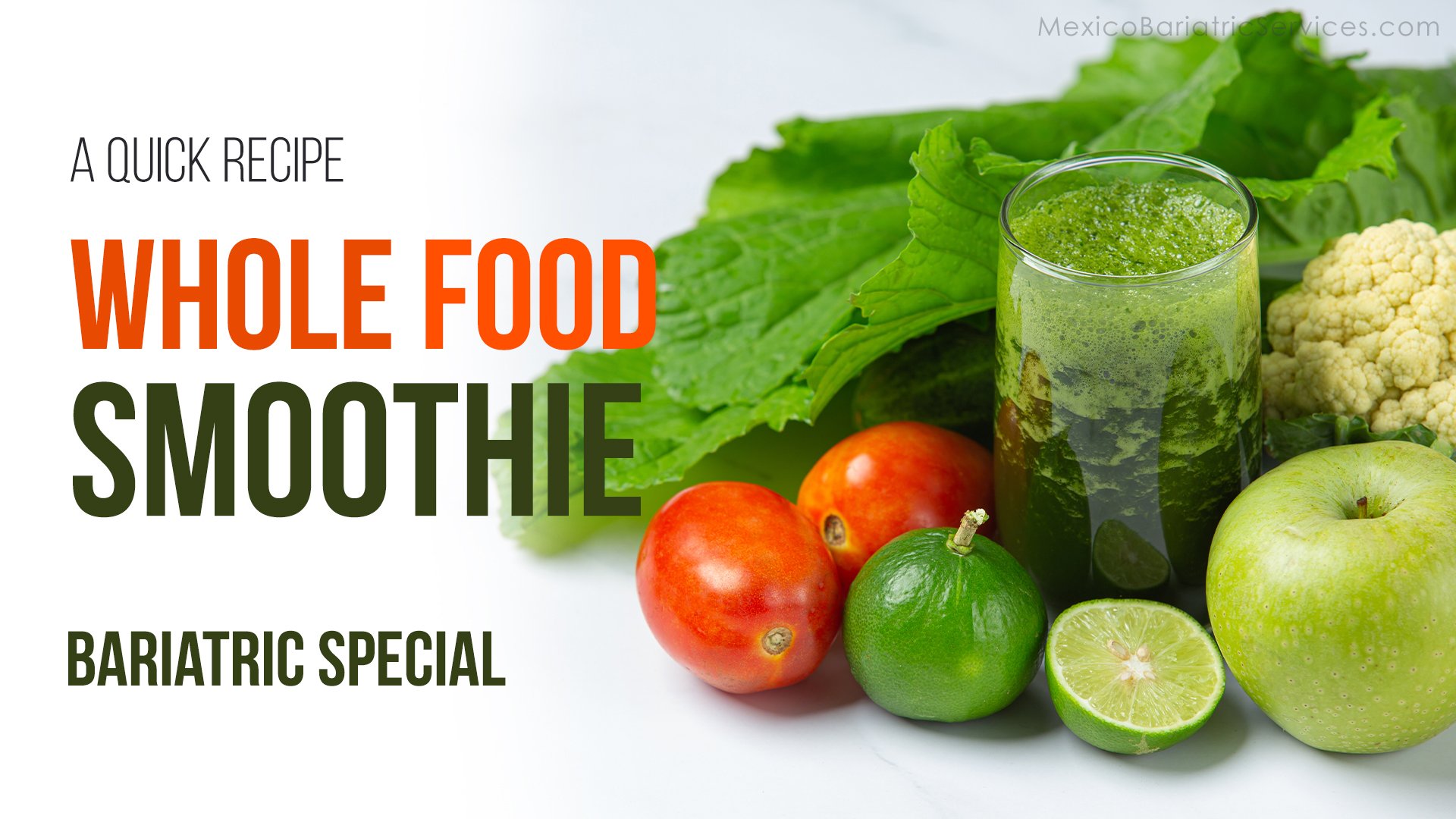Week 10 Post-op Bariatric Surgery Instructions
Medically Reviewed by Katelyn J. Mock, US-Registered Dietician (R.D.)
If you’re ten weeks or two and a half months out of bariatric surgery, then this post is for you.
It is important to remember that bariatric surgery, such as gastric sleeve or bypass, is not magic. Long-term weight loss and weight maintenance are due to the lifestyle choices that are made each day.
Our goal is to help you have a healthy lifestyle, and a big part of that is not feeling like you are on a “diet” all of the time.
Initially, after surgery, you do need a specific post-op bariatric diet, and more so texture modification, to allow your body to heal.
However, at this point after bariatric surgery, all foods can fit with an emphasis on eating a whole-food, plant-based diet.
Video: Whole Food Smoothie after WLS
Many individuals will still have foods that they don’t tolerate well or are more sensitive to and that can continue for months, even years after surgery.
- Continue to listen to your body and try not to “push” yourself with foods that you just may not be ready for.
- With eating all foods in moderation, try incorporating those “occasional” or more indulgent foods into meals. If you really want some potato chips, include them into a balanced lunch like steamed vegetables and grilled fish.
- Avoid eating the potato chips out of the bag. Instead, put a small serving on your plate, sit down at the table and savor each bite. All foods can fit with mindfulness and planning.
Don’t Lose Yourself Over Hair Loss
- Hair loss after bariatric surgery is one of the biggest concerns that people have going into surgery and it can be one of the more frustrating negative side effects.
- This natural hair loss that is experienced the first 3-6 months after bariatric surgery is called Telogen Effluvium.
- It is a reactive process caused by metabolic and hormonal stress or medications.
- Most patients after surgery begin to notice hair loss around 3 months post-op.
- The increase in hair loss can last for several weeks to months.
- While protein and vitamins/minerals are important to prevent nutrient-related hair loss, taking additional supplements beyond what is recommended will not prevent this natural process. The hair will grow back in time.
Tip of the Week
- If you have not already, begin adding in resistance activities such as lifting hand weights, yoga, or Pilates.
- By building more skeletal muscle, you will not only have stronger bones that prevent osteoporosis but also increase your metabolism.
- This is especially important for middle-aged and post-menopausal women.


